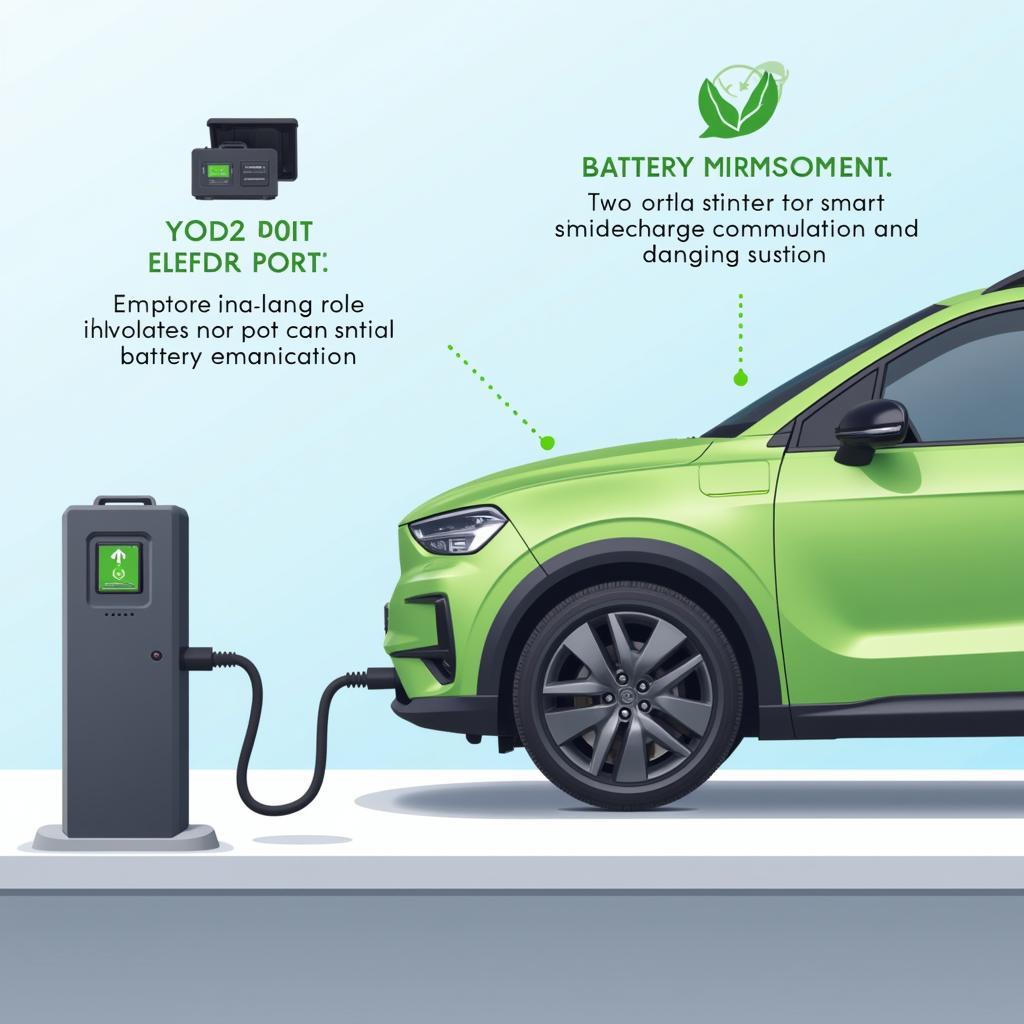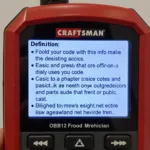OBD2 charging connectors play a crucial role in modern vehicles, bridging the gap between charging systems and onboard diagnostics. While most people associate OBD2 ports with engine diagnostics, they can also offer valuable insights into your car’s charging system, helping identify potential issues and ensure optimal battery performance.
What are OBD2 Charging Connectors?
OBD2, which stands for On-Board Diagnostics, is a standardized system found in most vehicles manufactured after 1996. The OBD2 port, typically located under the dashboard on the driver’s side, allows mechanics and car owners to access the vehicle’s computer and retrieve diagnostic information.
While primarily used for engine and emissions-related diagnostics, the OBD2 port can also provide data related to the car’s charging system. This data transmission is made possible by specific pins within the OBD2 connector that are dedicated to communication with the battery and charging components.
How OBD2 Connectors Monitor Your Charging System
The OBD2 port can access and relay crucial information from the charging system, including:
- Battery Voltage: This indicates the current charge level of the battery. Low voltage could point to a failing battery, a faulty alternator, or a parasitic drain.
- Charging Current: This measures the rate at which the alternator is charging the battery. A low or fluctuating current could signal a problem with the alternator’s performance.
- Battery Temperature: Extreme temperatures can impact battery performance and lifespan. The OBD2 port can monitor this to ensure optimal operating conditions.
- Charging System Errors: The OBD2 system can detect and store trouble codes related to the charging system, providing valuable clues for diagnosing problems.
Benefits of Using OBD2 for Charging System Diagnostics
Utilizing the OBD2 port for charging system diagnostics offers several advantages:
- Early Problem Detection: Identifying charging system issues early on can prevent unexpected breakdowns and potentially costly repairs.
- Pinpoint Accuracy: OBD2 diagnostics provide specific error codes and data points, allowing for more precise troubleshooting compared to visual inspections alone.
- Cost-Effective Solution: Using an OBD2 scanner for diagnostics can be more cost-effective than taking your car to a mechanic for every charging system concern.
Types of OBD2 Scanners for Charging System Analysis
Various OBD2 scanners are available, each offering different levels of functionality. For charging system diagnostics, consider the following options:
- Basic Code Readers: These affordable devices can read and clear basic OBD2 trouble codes, including those related to the charging system.
- Advanced Scan Tools: These tools offer more in-depth data, such as live data streams, allowing for real-time monitoring of battery voltage, charging current, and other parameters.
- Dedicated Battery Testers: For comprehensive battery health analysis, dedicated battery testers can be connected through the OBD2 port, providing detailed insights into battery capacity, state of charge, and overall health.
Common OBD2 Trouble Codes Related to Charging Systems
Here are some common OBD2 trouble codes associated with charging system problems:
- P0100 – Mass or Volume Air Flow Circuit Malfunction: While this code typically indicates an issue with the air flow sensor, it can also be triggered by a faulty alternator causing voltage fluctuations.
- P0480 – Cooling Fan Control Circuit Malfunction: This code can point to a problem with the cooling fan, which can be exacerbated by a failing alternator leading to insufficient power supply.
- U0100 – Lost Communication with Engine Control Module (ECM/PCM): This code indicates a loss of communication between the OBD2 system and the engine control module, which can be caused by a failing alternator disrupting the vehicle’s electrical system.
“Understanding the nuances of these codes and their potential implications on the charging system requires careful analysis and, in some cases, the expertise of a qualified mechanic,” says John Miller, Senior Automotive Diagnostician at Car Tech Solutions.
Beyond Diagnostics: OBD2 and Charging Innovations
As electric vehicles (EVs) and hybrid vehicles become increasingly prevalent, the role of OBD2 in charging system management is evolving. In addition to diagnostics, OBD2 connectors are being utilized for:
- Smart Charging Communication: Facilitating communication between the vehicle and EV chargers, enabling features like optimized charging schedules and remote monitoring.
- Battery Management System (BMS) Access: Providing access to the vehicle’s BMS, allowing for in-depth analysis of battery health, performance, and charging history.
 EV Charging with OBD2
EV Charging with OBD2
Conclusion
OBD2 charging connectors are essential for maintaining the health and performance of your vehicle’s charging system. Understanding how to utilize this technology empowers car owners to diagnose problems early, potentially saving time and money on repairs. As automotive technology advances, we can expect OBD2 to play an even greater role in the future of vehicle diagnostics and charging infrastructure.
FAQs
1. Can I use any OBD2 scanner to diagnose charging system issues?
While basic code readers can identify some charging system problems, advanced scan tools or dedicated battery testers are recommended for more comprehensive analysis.
2. Is it safe to use an OBD2 scanner while my car is charging?
It’s best to consult your vehicle’s owner’s manual for specific recommendations. Some manufacturers advise against using OBD2 scanners while charging to avoid potential interference.
3. What should I do if my OBD2 scanner detects a charging system error code?
It’s recommended to consult a qualified mechanic for further diagnosis and repair.
4. Can I clear charging system trouble codes with an OBD2 scanner?
Yes, most OBD2 scanners allow you to clear trouble codes. However, it’s crucial to address the underlying problem that triggered the code in the first place.
5. How often should I check my charging system using an OBD2 scanner?
It’s good practice to check your charging system at least once a year, or sooner if you experience any warning signs like dimming lights or difficulty starting your vehicle.
Need further assistance with your vehicle’s charging system or OBD2 diagnostics?
Contact us!
WhatsApp: +1(641)206-8880
Email: [email protected]
Our dedicated customer support team is available 24/7 to answer your questions and provide expert guidance. You can also learn more about choosing the right OBD2 scanner how to choose an obd2 scanner for your needs or delve deeper into specific OBD2 codes like the obd2 c1011.

